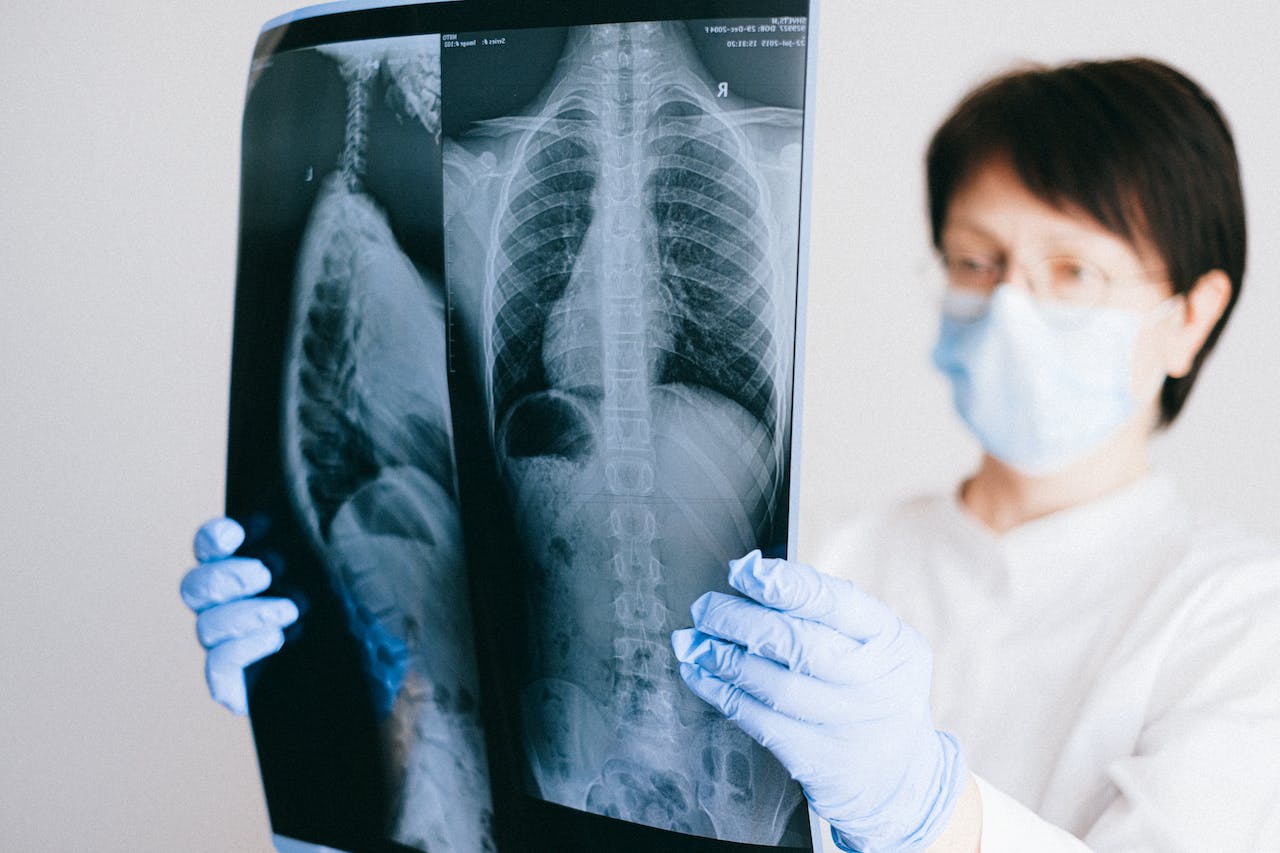Pregnancy is an exciting and beautiful time in a woman’s life, but it can also come with its fair share of challenges. One common issue that pregnant women may face is a urinary tract infection (UTI). While UTIs are a common infection for women in general, including non-pregnant women, they can be even more prevalent during pregnancy. It’s important for expectant mothers to be aware of the symptoms and risks associated with a pregnancy urine infection.
Recognising the signs of a pregnancy urine infection and seeking prompt treatment is crucial for the health of both the mother and the baby. In this article, we will explore the causes, symptoms, and potential complications of UTIs during pregnancy, as well as provide tips for prevention and treatment. By understanding the importance of maintaining urinary tract health during pregnancy, expectant mothers can take proactive steps to protect themselves and their baby.
UTI Symptoms
UTIs occur when bacteria enter the urinary tract and cause infection. The symptoms of a urinary tract infection during pregnancy may include pain or a burning sensation when urinating, a frequent urge to urinate, cloudy or bloody urine, pelvic discomfort, or lower abdominal pain. Elevated temperature may also be present.
It is important to seek medical advice if you experience any of these symptoms, as untreated UTIs can lead to complications such as kidney infections, preterm delivery, and low birth weight. To reduce the risk of UTIs, pregnant women are encouraged to drink plenty of water to flush out bacteria and maintain good hygiene practices. Emptying the bladder fully and frequently can also help prevent the accumulation of bacteria. Additionally, wearing cotton underwear and avoiding tight-fitting clothing can help keep the urinary tract dry.

Why Are UTIs More Common During Pregnancy?
During pregnancy, urinary tract infections are more common due to a combination of hormonal changes, anatomical adjustments, and increased pressure on the bladder caused by the growing uterus.
Hormonal changes in pregnancy can lead to various alterations in the urinary tract. The hormones progesterone and relaxin cause relaxation and dilation of the urinary tract, making it easier for bacteria to travel up to the bladder. This increased relaxation also affects the ureters, the tubes that connect the kidneys to the bladder, slowing down urine flow and increasing the risk of bacterial infection.
Anatomical changes, such as the expansion of the uterus, can put pressure on the bladder. As the uterus grows, it can compress the bladder, reducing its capacity and making it harder to completely empty the bladder. This stagnation of urine can allow bacteria to multiply and cause an infection.
There are several specific causes of UTIs during pregnancy. Bacteria from the rectum, such as Escherichia coli, can easily spread to the urethra and cause an infection. Sexual activity can also introduce bacteria into the urinary tract. Additionally, pregnant women are at a higher risk of developing group B streptococcus (GBS) colonisation, which can lead to UTIs if it spreads to the urinary tract.
Seeking medical advice and following prevention strategies, such as drinking plenty of fluids, practicing good hygiene, and emptying the bladder frequently, can significantly reduce the risk of UTIs during pregnancy.
UTI Diagnosis During Pregnancy
The diagnosis of a UTI during pregnancy is crucial for the health of both the mother and the baby. Detecting and treating UTIs promptly can help prevent complications that may arise from untreated infections.
The standard method for diagnosing a UTI in pregnancy is through a urine culture. This test involves obtaining a clean catch urine sample, where the genital area is cleaned thoroughly before collecting urine midstream. The sample is then sent to a laboratory where it is tested for the presence of bacteria and the type of bacteria causing the infection. This allows your health care provider to determine the best course of treatment, as some bacteria may be resistant to certain antibiotics.
Regular prenatal urine tests play a crucial role in detecting UTIs early. These tests are typically performed during each prenatal visit to monitor for any signs of infection. Even if there are no noticeable symptoms, urine tests can identify infections that may be present without causing obvious discomfort.
By staying vigilant and seeking medical attention for any potential UTI symptoms, pregnant women can ensure a healthy pregnancy and minimise the risks associated with urinary tract infections.

UTI Treatment During Pregnancy
Prompt and appropriate treatment of urinary tract infections is crucial during pregnancy. Pregnant women diagnosed with a UTI will typically be prescribed antibiotics for 3 to 7 days, focusing on medications that are considered safe for both the mother and the baby’s development.
Commonly prescribed oral antibiotics that are considered safe for pregnant women include amoxicillin, erythromycin, and penicillin. These medications effectively combat the infection while minimising potential risks to the baby.
To ensure the complete eradication of the infection, it is important to follow the prescribed medication schedule. It is crucial to complete the full course of antibiotics, even if symptoms improve, to prevent the infection from returning or becoming more resistant.
Additionally, your health care provider may require proof-of-cure cultures. These periodic follow-up urine tests help confirm that the infection has been successfully treated and to prevent any lingering bacteria from causing further complications.
Always consult with a health care provider for personalised advice and treatment options for UTIs during pregnancy.
UTI Complications During Pregnancy
UTIs during pregnancy can lead to several potential complications that pose risks to both the mother and the developing baby. It is crucial to understand and address these complications to ensure a healthy pregnancy and a safe delivery.
One of the most concerning complications of UTIs during pregnancy is the increased risk of premature labor. Studies have shown that pregnant women with untreated UTIs are more likely to experience preterm birth, which can lead to a range of health issues for the baby. Premature delivery is associated with respiratory distress syndrome, where the baby’s lungs are not fully developed, and they may require assistance with breathing.
In some cases, UTIs can progress to severe infections that can spread to the kidneys, a condition known as pyelonephritis. This can result in more serious health risks for the mother, such as fever, flank pain, and even sepsis. Severe infections require immediate medical attention and may necessitate hospitalisation and intravenous antibiotics.
Furthermore, persistent UTIs can contribute to other complications, including anaemia. Chronic infections can lead to blood loss and lower the mother’s red blood cell count, resulting in fatigue, weakness, and potentially affecting the baby’s growth.
To prevent these complications, early detection and prompt treatment of UTIs during pregnancy are crucial. Regular prenatal check-ups with your health care provider should include urine testing to detect any signs of infection.

UTI Prevention
By taking some simple measures, pregnant women can significantly reduce their risk of developing UTIs. Here are some preventive steps that can be taken:
1. Proper hydration: Drinking plenty of water throughout the day helps to flush out bacteria from the urinary tract. Aim for at least 8-10 glasses of water daily.
2. Regular urination: Frequent urination helps to prevent the buildup of bacteria in the urinary tract. Avoid holding urine for long periods and empty your bladder completely each time.
3. Good hygiene practices: Maintaining proper hygiene is important to prevent bacteria from entering the urinary tract. Remember to wipe from front to back after using the toilet to avoid spreading bacteria from the anal area to the urethra.
4. Avoid irritants: Refrain from using douches, strong soaps, and feminine hygiene sprays, as they can disrupt the natural balance of bacteria in the urinary tract and make you more susceptible to infections.
5. Consider cranberry juice or pills: Some studies suggest that cranberry juice or cranberry supplements may help prevent UTIs by preventing bacteria from attaching to the walls of the urinary tract. However, it is essential to consult with your health care provider before starting any supplements during pregnancy.
By following these preventive measures, pregnant women can minimise their risk of developing UTIs and ensure a healthy pregnancy.
What Increases or Reduces Risk of UTIs During Pregnancy?
Certain conditions, such as sickle cell disease and diabetes, can increase the risk of UTIs in pregnant women. Sickle cell disease affects the ability of red blood cells to carry oxygen, which weakens the immune system and makes the body more susceptible to infections, including UTIs. Similarly, diabetes can impair the immune system’s ability to fight off bacteria, increasing the likelihood of developing a UTI.
By understanding the risk factors, staying in close contact with their health care provider, and taking appropriate precautions, pregnant women can reduce their chances of developing UTIs during pregnancy and safeguard their own health and the health of their babies.

FAQs
Can a UTI affect a pregnancy test?
When it comes to the accuracy of a pregnancy test, a UTI does not have any influence.
Pregnancy tests are specifically designed to detect the presence of the human chorionic gonadotropin (hCG) hormone in urine. This hormone is produced during pregnancy and is unaffected by infections such as a UTI. Therefore, if someone with a UTI takes a pregnancy test, the results will not be affected by the presence of the infection.
Can a urinary tract infection prevent pregnancy?
If left untreated, UTIs can have potentially serious consequences, including disrupting kidney function and affecting ovulation, which could potentially prevent pregnancy.
Can a UTI be a sign of pregnancy?
Urinary tract infections and pregnancy are two separate conditions that can sometimes share similar symptoms. However, it is important to note that a UTI itself is not a sign of pregnancy. UTIs occur when bacteria enter the urinary tract and cause an infection, while pregnancy is defined by the implantation and growth of a fertilised egg in the uterus.
Although a UTI is not a direct sign of pregnancy, there may be some overlap in symptoms, such as frequent urination, fatigue, and even pelvic discomfort. These symptoms can also be experienced during early pregnancy due to hormonal changes and the increased blood flow to the pelvic area.
Conclusion
In conclusion, urinary tract infections during pregnancy are a common and concerning issue that should not be ignored. The potential risks and complications associated with UTIs in pregnant women highlight the importance of early detection and proper treatment.
By understanding the causes, symptoms, and preventive measures, expectant mothers can take proactive steps to protect their health and the well-being of their unborn child. With proper education and awareness, women can confidently navigate this potential health concern and ensure a healthy pregnancy journey.


